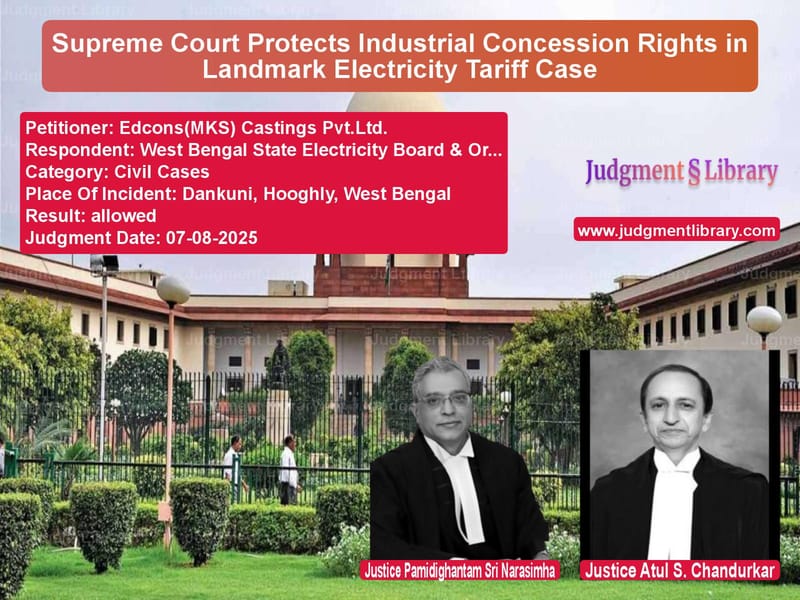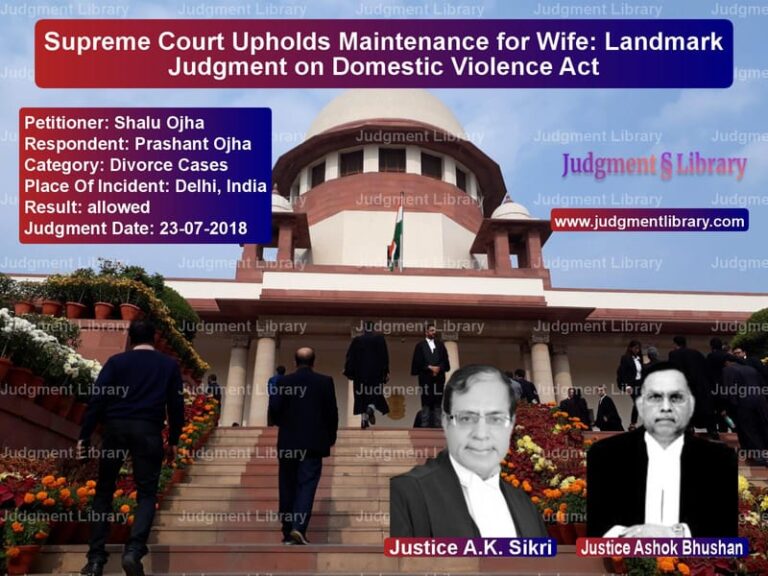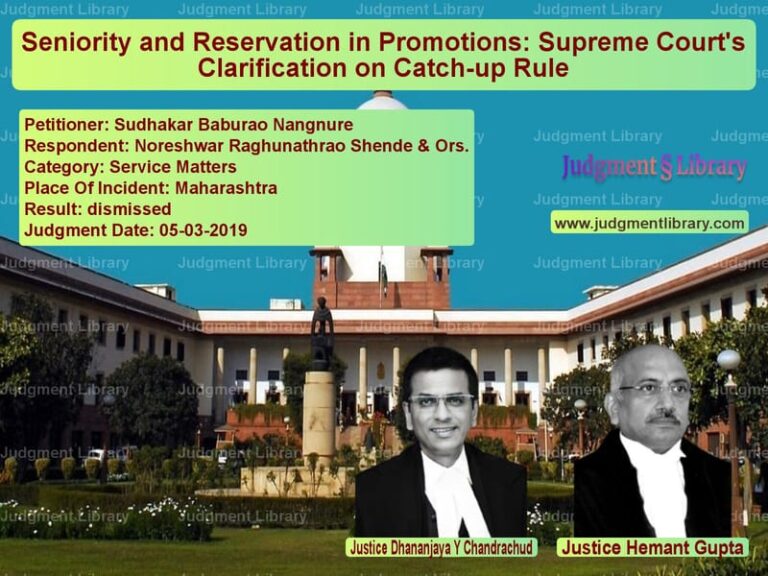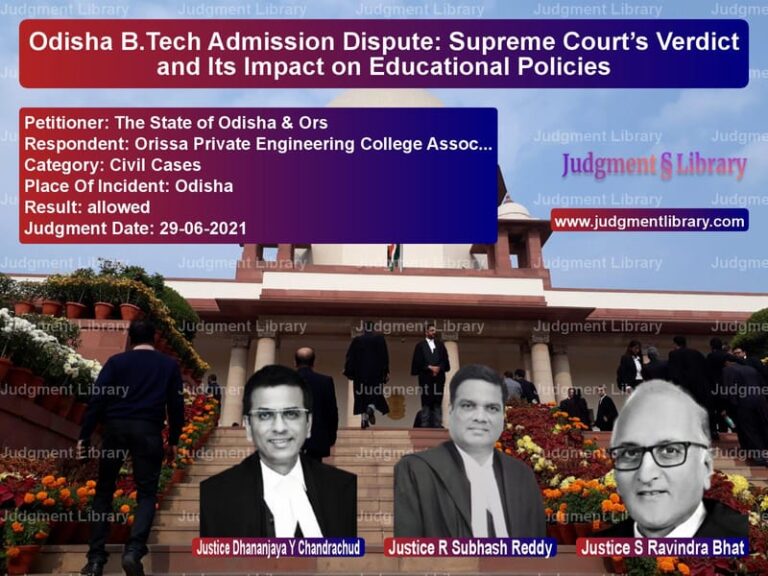Supreme Court Protects Industrial Concession Rights in Landmark Electricity Tariff Case
In a significant judgment that reinforces the sanctity of contracts and protects industrial units from arbitrary state action, the Supreme Court has delivered a landmark verdict favoring a small-scale industry against the West Bengal State Electricity Board. The case, which spanned over two decades, centered around the withdrawal of concessional electricity tariffs that had been promised to the industry during its expansion and technological upgrade.
The dispute began when Edcons (MKS) Castings Pvt. Ltd., a manufacturer of cast iron products, decided to expand its operations and upgrade its technology by installing a 500 Kgs capacity Induction Furnace with 300 KVA power requirement. This upgrade significantly enhanced their production capacity to 1500 metric tons per year in grey iron casting and an additional 1200 metric tons in ductile iron casting. This technological transformation effectively transitioned the company into what was classified as a ‘New Industry’ under the West Bengal State Electricity Board’s policy.
The Board had issued a notification in 1996 offering concessional tariffs to new and expanding industries as well as sick and closed industries being reopened. The policy clearly stated that “All new HT industrial consumers drawing power at 6/6, 6/11 KV will be given a concession of 25% on the total energy charges for three years.” This concession was designed to encourage industrial growth and technological advancement in the state.
In August 1998, Edcons applied for HT power supply to replace their existing LT connection, following all required procedures. After depositing the processing fee and undergoing a joint inspection on September 15, 1998, the Board issued a sanction memo on October 10, 1998, which explicitly stated that “You will be eligible for a concession of 25% on total energy Charges (excluding demand charge & fuel surcharge) for 3 (three) years from the date of permanent connection provided you do not avail of subsidy on purchase and installation of captive power generation sets as per W.S. Incentive Scheme, 1993.”
Following this sanction, the company deposited the required service connection charges and executed a formal agreement with the Board on January 18, 1999. The permanent HT power supply connection was effected on July 29, 1999, and true to their commitment, the Board granted the 25% concession in the energy bills for August, September, and November 1999.
However, problems began when the Board suddenly stopped the concession in the October 1999 bill and demanded that the company provide a certificate confirming they had not availed any subsidy under the West Bengal State Incentive Scheme of 1993. The company promptly obtained and submitted the required certificate from the Industrial Development Officer on November 18, 1999, which clearly stated that “M/s EDCONS (MKS) CASTING PVT. LTD. HAS NOT AVAILED ANY STATE INCENTIVE UNDER W.B. STATE INCENTIVE SCHEME OF 1993 GUIDELINES.”
Despite this compliance, the Board rejected the certificate and demanded another one from either the West Bengal Industrial Development Corporation or the Director of Cottage and Small Scale Industries. The company again complied, obtaining a second certificate on July 12, 2000, from the Director, Cottage and Small Scale Industries, West Bengal, which certified that “the undertaking has neither applied for nor availed of any subsidy on purchase and installation of captive Power Generating Set under State Scheme of Incentive for Cottage and Small Scale Industries 1993.”
Just when it seemed the matter was resolved, the Board introduced a completely new objection in November 2000, claiming that the company was not a ‘New Industry’ and therefore ineligible for the concession. This sudden change of stance came more than two years after the initial sanction and agreement, and after the company had already invested substantial resources based on the promised concession.
The company challenged this arbitrary decision through a writ petition in the Calcutta High Court, but both the Single Judge and Division Bench dismissed their petition, relying on technical interpretations. The High Courts held that since the company had converted from a medium voltage consumer to a bulk consumer category, they were not eligible for the concessional rate meant for new HT/EHT industries.
The Supreme Court, however, took a completely different view of the matter. The bench comprising Justices Pamidighantam Sri Narasimha and Atul S. Chandurkar strongly criticized the Board’s shifting stands and the High Courts’ failure to properly examine the facts. The court noted that “the Board is not justified in changing its stand after more than 2 years.”
In their strongly worded judgment, the Supreme Court observed that “The Single Judge as well as the Division Bench of the High Court have committed a serious error in not scrutinizing the letter of the Board dated 16.11.2000 in the context of the admitted facts, whereunder the position of the Board is completely different. The facts speak for themselves and there is no need for any further discussion or analysis.”
The court further stated that “We have no hesitation in holding that decision of the Board dated 16.11.2000 is unsustainable, illegal and arbitrary.”
The Supreme Court’s judgment highlights several important legal principles. First, it establishes that government authorities cannot arbitrarily change their position years after granting approvals and entering into agreements. Second, it reinforces that when industries make substantial investments based on promised incentives, those promises must be honored. Third, it demonstrates that courts will intervene to prevent arbitrary state action that harms industrial growth and development.
The court allowed the appeal and set aside the High Court’s judgment, directing that the company was entitled to the 25% concession on total energy charges for three years as per the original agreement dated January 18, 1999. Fortunately, during the prolonged legal battle, the company had already received the concessional rate through subsequent adjustments, so the question of refund did not arise.
This judgment serves as an important precedent for industries across India, particularly small and medium enterprises that often face arbitrary treatment from government authorities. It sends a clear message that promises made by state agencies must be kept, and that industries that undertake technological upgrades and expansions based on such promises have legitimate expectations that must be protected by law.
The case also underscores the importance of contractual sanctity in business relationships with government entities. When a state electricity board enters into a formal agreement with an industrial unit, complete with specific terms about concessions and incentives, it cannot later unilaterally decide to renege on those commitments without valid and substantial reasons.
For the business community, this judgment provides much-needed reassurance that investments made in good faith, based on government policies and agreements, will receive judicial protection against arbitrary state action. It reinforces the principle of legitimate expectation and prevents government agencies from engaging in ‘gotcha’ tactics by approving projects and then later finding technical reasons to withdraw benefits.
The Supreme Court’s firm stance in this matter not only provides justice to one particular company but also strengthens the overall business environment by ensuring that government policies are implemented consistently and fairly, without arbitrary changes that undermine industrial growth and development.
Petitioner Name: Edcons(MKS) Castings Pvt.Ltd..Respondent Name: West Bengal State Electricity Board & Ors..Judgment By: Justice Pamidighantam Sri Narasimha, Justice Atul S. Chandurkar.Place Of Incident: Dankuni, Hooghly, West Bengal.Judgment Date: 07-08-2025.Result: allowed.
Don’t miss out on the full details! Download the complete judgment in PDF format below and gain valuable insights instantly!
Download Judgment: edcons(mks)-castings-vs-west-bengal-state-el-supreme-court-of-india-judgment-dated-07-08-2025.pdf
Directly Download Judgment: Directly download this Judgment
See all petitions in Contract Disputes
See all petitions in Consumer Rights
See all petitions in Damages and Compensation
See all petitions in Legal Malpractice
See all petitions in Other Cases
See all petitions in Judgment by P.S. Narasimha
See all petitions in Judgment by Atul S. Chandurkar
See all petitions in allowed
See all petitions in supreme court of India judgments August 2025
See all petitions in 2025 judgments
See all posts in Civil Cases Category
See all allowed petitions in Civil Cases Category
See all Dismissed petitions in Civil Cases Category
See all partially allowed petitions in Civil Cases Category







